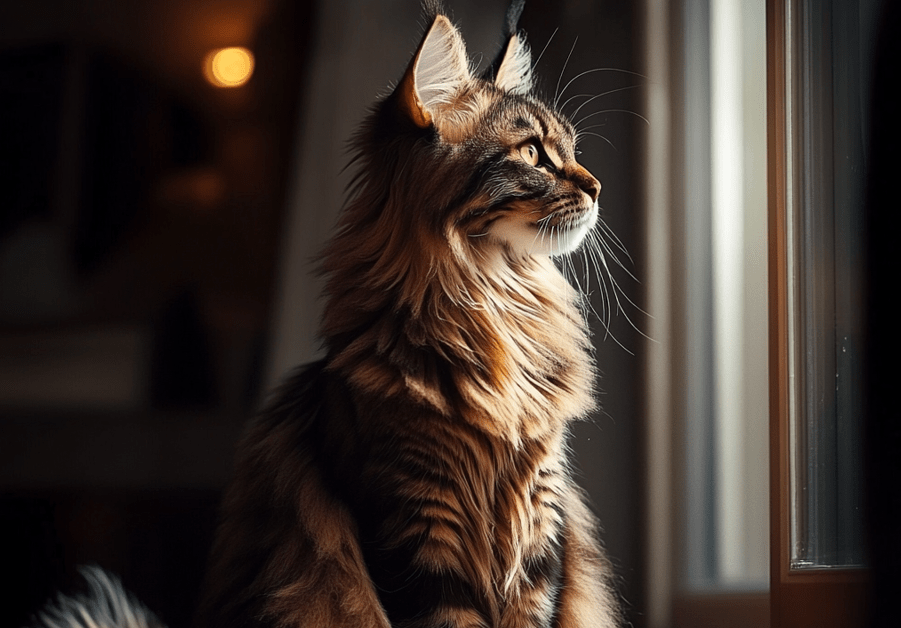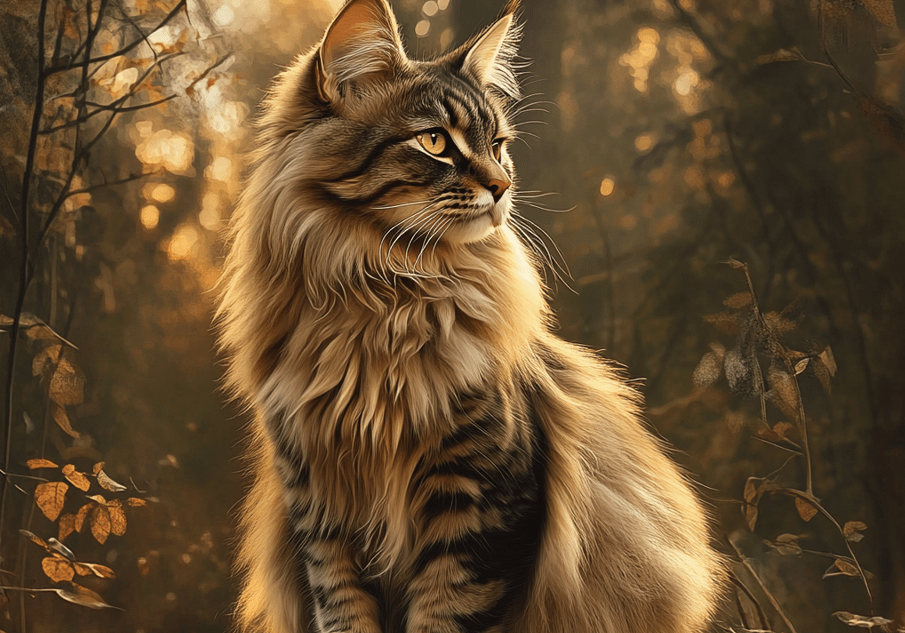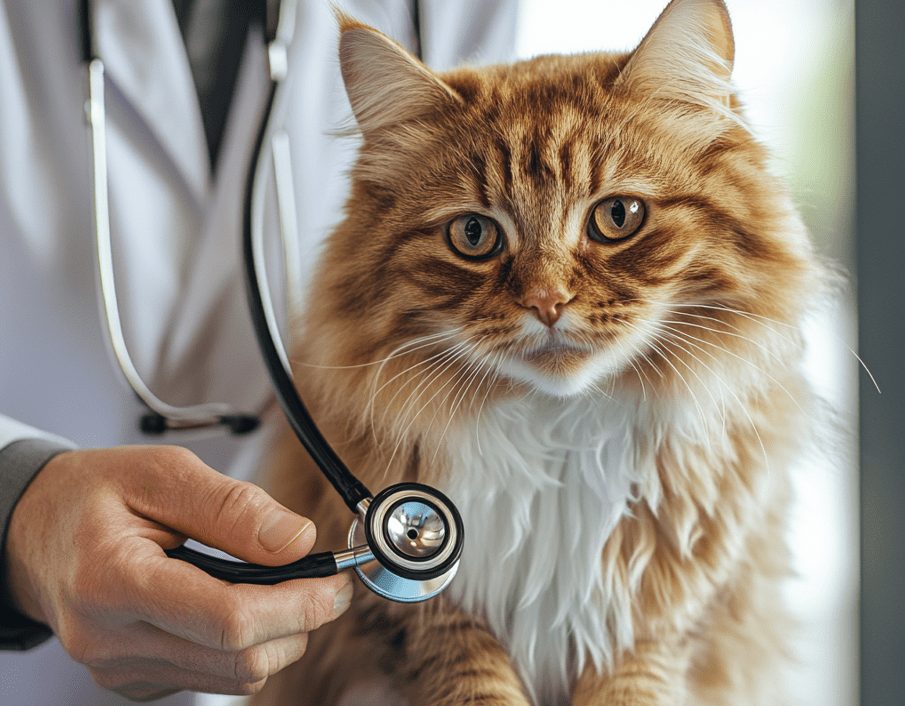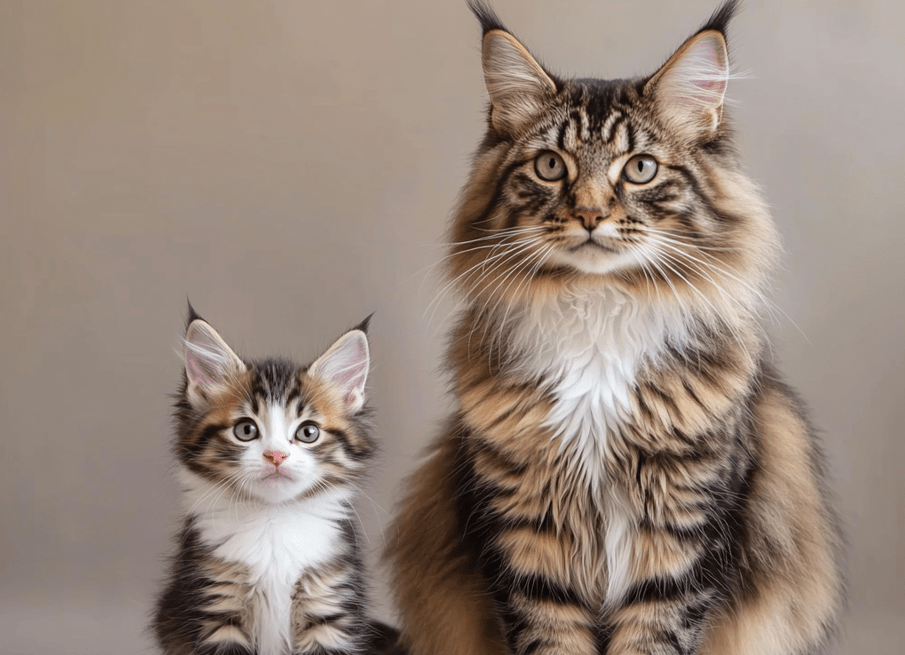
Maine Coon Growth Stages: Key Phases and What to Expect
Understanding the Maine Coon growth stages is crucial for ensuring the health and well-being of your pet. From kittenhood to adulthood, the Maine Coon undergoes several significant changes. The breed’s growth is gradual, with major milestones occurring in the first few years. Early stages include rapid weight gain and muscle development, while later stages focus on maturity and personality formation. By understanding these stages, you can better provide the necessary care and attention, ensuring your Maine Coon thrives as it grows.
1.Factors Influencing Maine Coon Size
Among the characteristics that make Maine Coon cats famous for their large size are multiple factors that determine their ultimate growth potential. Genetic factors mostly determine Maine Coon cat size, yet their final dimension depends significantly on their nutrition, environmental elements, and physical condition.
Natural inheritance from a Maine Coon cat’s parents plays the leading role in determining a cat’s final size. Kittens obtain genetic materials from their parents during inheritance to determine their eventual adult dimensions. Maine Coon kittens tend to develop large sizes when their parents possess big bodies.
Maine Coon cats need proper nutrition for their proper growth and development during their developmental period. All Maine Coon cats need to receive a nutritional diet that supports their whole health requirements. Insufficient diet components might harm the physical development of a Maine Coon cat, resulting in stunted growth and additional medical complications.
Maine Coon cat size depends on their overall health status due to wellness levels. Cats without health problems tend to achieve their maximum size. Regular veterinary exams along with proper healthcare both support Maine Coon cat well-being as well as their growth development.
The environment that Maine Coon cats inhabit shows a direct influence on their overall size. Maine Coons need a space in their environment both for active play and physical movement to achieve correct muscle toning while staying fit.
2.Maine Coon Kitten Development
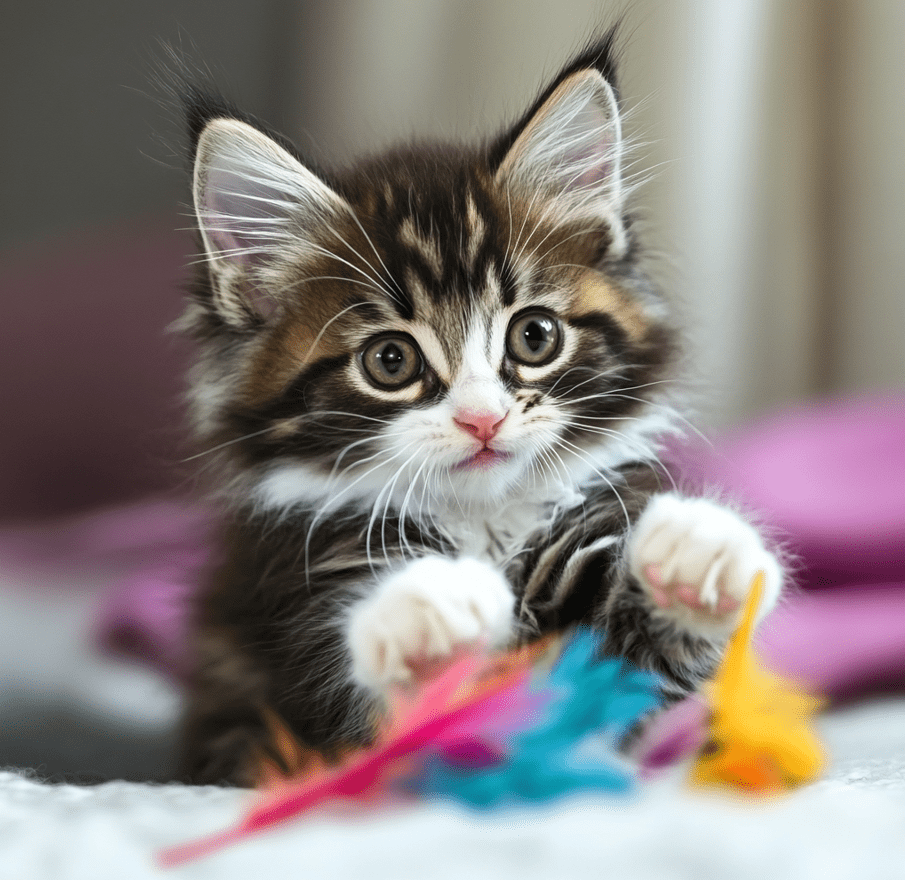
Your Maine Coon kitten will appear extremely delicate during the initial weeks of life, although their size will eventually grow large. Maine Coon kittens begin life with the same small size as other kittens, although they will grow into their enormous final appearance. Newborn Maine Coon kittens mostly sleep while developing their strength by discovering new things in their immediate area. They need their mother to provide only nourishment that delivers all necessary nutrients for their development. The first stage of development demands that newborn Maine Coon kittens receive proper warmth and security and continuous nourishment, which remains essential for their development. Establishing a peaceable protected area for the mother kitten together with her babies is necessary for their growth and success under low-stress conditions.
Your Maine Coon kitten will develop stronger curiosity toward their environment starting from two months old. Your Maine Coon kitten needs active engagement at this particular developmental period. Human handling combined with sibling play activities helps produce good social abilities in Maine Coon kittens. At this point, you should provide your Maine Coon kitten with diverse toys that activate their predatory behavior while promoting good play techniques. Prey-like toys consisting of feathers on a string or small moving objects tend to hold the most fascination for Maine Coon kittens. When kittens connect regularly with household members and pets, they will develop excellent social skills together with a positive personality. Between energetic activities and rest, your Maine Coon kitten needs sufficient downtime because growth spurts require fueling their body.
During their first weeks of life, the Maine Coon kitten’s bodily growth and mental development achieve their shape. Through consistent nurturing activities along with regular gentle play, your Maine Coon kitten will develop into an assured and rounded cat toward adulthood. Every interaction between you and your kitten forms the foundation of an everlasting bond that develops into a lasting relationship with your precious pet.
3.Growth Milestones: Two Months to Six Months
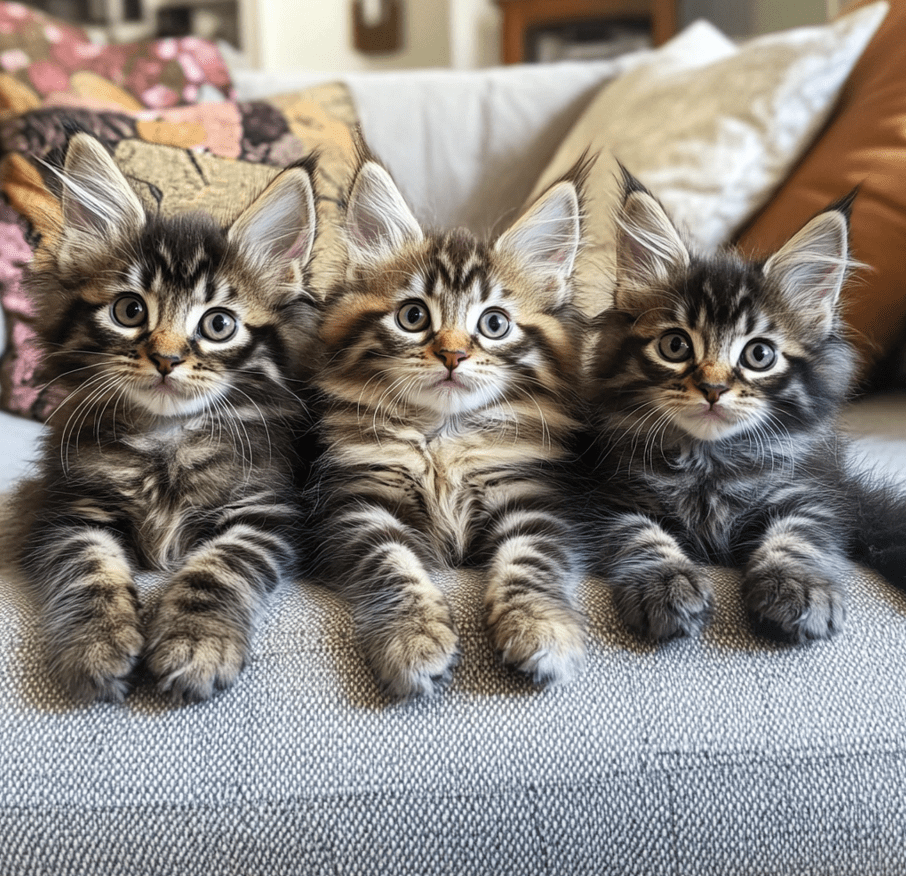
Month Two
Throughout this period, your Maine Coon kitten will grow to achieve a weight between 2 to 4 pounds. Your Maine Coon kitten becomes increasingly active while showing growing signs of adventurousness and showing its playful personality to the fullest. The time demands constant supervision of their eating routine while giving them premium kitten foods that contain high amounts of proteins essential for their fast development.
Month Four
The weight of Maine Coons reaches notable proportions after four months since most kittens grow to weigh between 4 to 8 pounds by this stage. Their personality grows more distinct at this time while they show individual traits and specific behaviors. It is essential to promote both exploration and playtime because these activities help the cats develop their muscles and coordination abilities.
Month Six
During their sixth month, most Maine Coons experience rapid development, causing their weight to rise to between 6 and 12 pounds. Maine Coons require proper nutrition due to their growing appetite at this stage. The owner should start scheduling veterinarian appointments to provide vaccinations and routine checkups for maintaining health as the Maine Coon grows.
The development stage allows Maine Coons to create their individual personalities while solidifying their bonds with owners, reducing the span of owner confusion.
Six Month Old Maine Coon: What to Expect at This Stage
When your Maine Coon reaches six months old, it will experience significant changes. A six month old Maine Coon typically weighs between 6 and 12 pounds and begins to show its personality more clearly. At this stage, the cat may start to exhibit some adult-like behaviors, but it still requires a lot of nutrition to support its ongoing growth. Regular veterinary visits for health checkups and vaccinations are essential during this phase. Understanding the six month old Maine Coon is key to ensuring it stays healthy and develops properly.
4.Adolescence to Adulthood: Six Months to Five Years
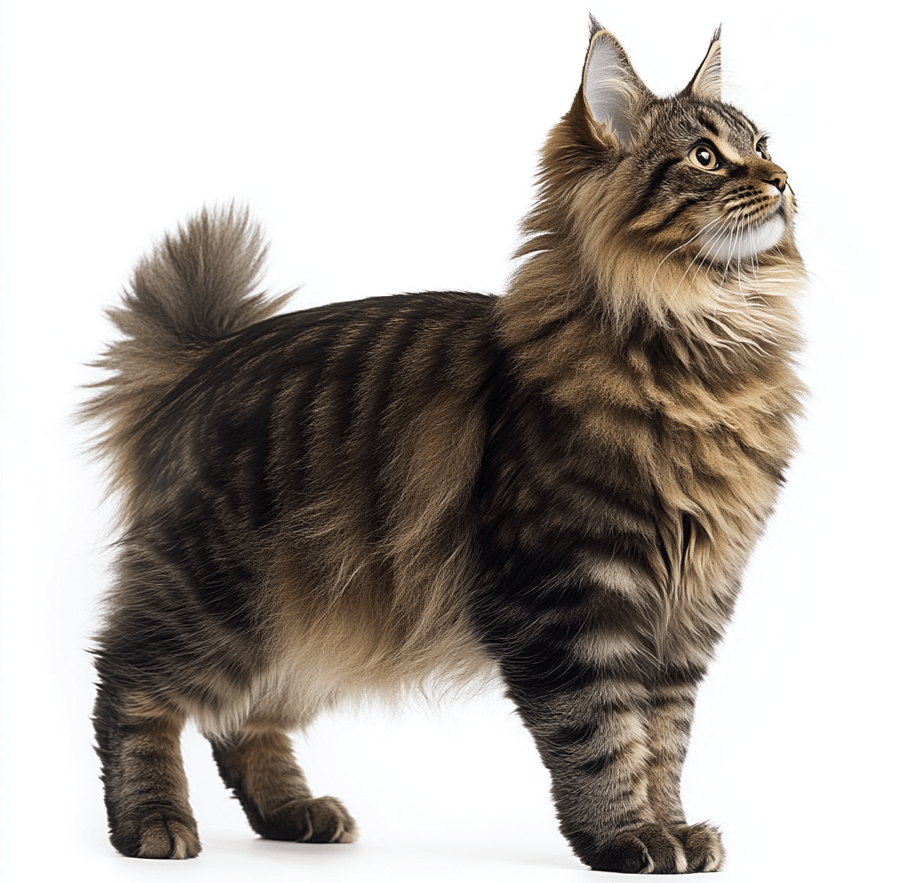
The adolescent phase maintains physical development in your Maine Coon kitten, although its rate becomes gradually slower. Your Maine Coon needs a diet adjustment while its expansion slows down, although its vitality rises. Food quality of the right kind remains essential for your kitten’s development in this period.
Healthcare becomes particularly important now. Schedule spaying or neutering procedures for your Maine Coon kitten because prevention of unwanted behaviors and health complications will occur.
Typical Maine Coon kitten growth reduces to about fifty percent of their final size by the time they turn one year old. Maine Coons develop their full size between their third and fifth year of life as they grow and mature. You will see the full elegant appearance with serene behavior that defines Maine Coons at this life stage.
When Does Maine Coon Stop Growing? Key Growth Milestones and Timelines
Many Maine Coon owners wonder, “When does a Maine Coon stop growing?” The answer varies slightly depending on the cat’s genetics and other factors, but typically, Maine Coons stop growing around 3 to 5 years of age. While they reach adolescence at about six months, their physical growth continues steadily until they fully mature. Understanding this timeline ensures you’re prepared for changes in your cat’s behavior, diet, and healthcare as they transition from kitten to adult.
5.Nutrition and Feeding Guide for Maine Coons
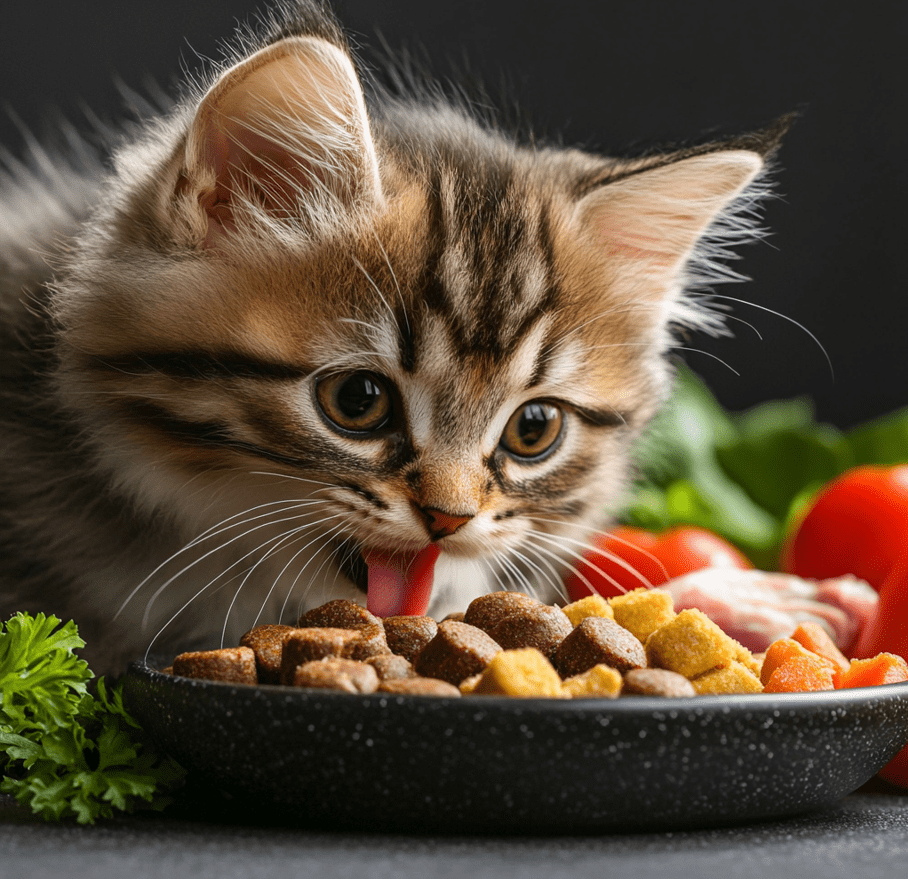
The recommended food amount for your Maine Coon depends both on their age and exercise habits. The period of continuous growth in kittens requires higher calorie food intake than adult cats. This following guide demonstrates proper food amounts according to your Maine Coon’s age:
Let your kittens transition to wet food by offering divided daily portions of two to six small meals from the age of three weeks until they become ten-month-old adults.
The transition from kitten food to adult food needs to be done slowly within this time period to avoid digestive problems in adults aged 15 months to 4 years.
Senior cats require persuasion from their veterinarian to lower their calorie consumption at nine years old since their reduced activities demand this change. Seek veterinary advice for determining the proper feeding amount of senior cat Maine Coons. Your cat’s individual requirements will guide the precise feeding recommendations that a veterinarian can provide to you.
Suitable, healthy food forms the foundation for the development and weight management of your Maine Coon. A domesticated cat should get food that replicates its natural prey diet of birds, lizards, rabbits, and other small animals because wild cats survive by hunting such meals in their habitat.
6.Responsible Breeding and Realistic Expectations
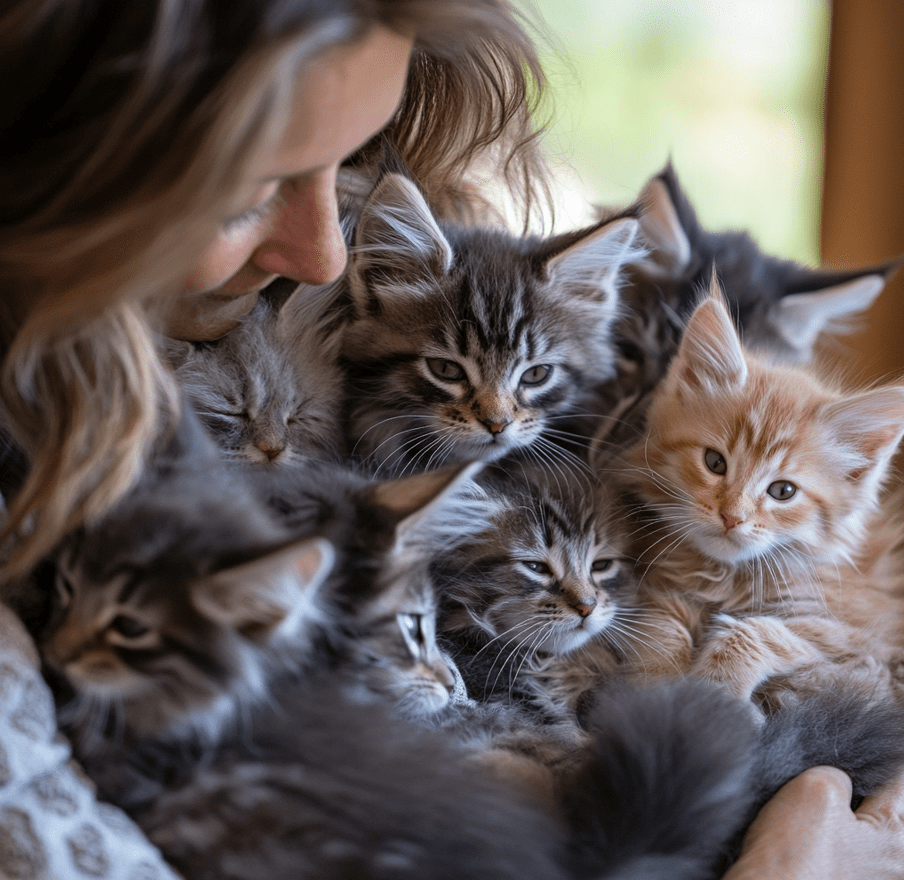
People viewing images of Maine Coons online usually witness enormous-looking cats. The process of photo manipulation enables breeders to falsely enlarge their cat’s size in photographs. The size of the pictured cat pretending to be Godzilla should serve as an indicator that you are not obtaining the real deal. The deliberate cat size manipulation by breeders creates doubts about other fundamental details in their information.
Determining the exact weight of a cat through photographs presents an immensely challenging task. You must never hesitate to request the actual weight of parents from your breeder. The dimensions of adult kittens cannot be identified from their parent sizes since development could lead to different results. The kitten possesses most likely the potential to develop its full size but can achieve either greater dimensions or smaller ones. According to prior information, male individuals should develop bigger sizes compared to female individuals. The breeders responsible for the breeding management elevate health advantages and superior traits before focusing on size.
When Do Maine Coon Cats Stop Growing? Understanding Their Final Size
If you’re wondering, “When do Maine Coon cats stop growing?”, the answer lies in their unique growth pattern. Maine Coons are one of the largest domesticated cat breeds, and their size continues to increase until they reach full maturity around 3 to 5 years. Their long growth period means they continue to gain muscle and bulk, even into their early adult years. Understanding when Maine Coon cats stop growing helps owners prepare for their cat’s eventual size and adjust care routines accordingly.

